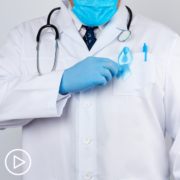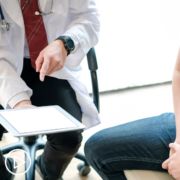Should You Have Prostate Cancer Genetic Testing?
Should You Have Prostate Cancer Genetic Testing? from Patient Empowerment Network on Vimeo.
Should you ask for prostate cancer genetic testing? Dr. Nima Sharifi discusses prostate cancer genetics and shares his perspective on how testing can help ensure the best care for a patient.
Dr. Nima Sharifi is Director of the Genitourinary (GU) Malignancies Research Center at the Cleveland Clinic. Learn more here.
See more from The Pro-Active Prostate Cancer Patient Toolkit
Related Resources

Prostate Cancer Treatment Decisions: How Do Genetic Test Results Impact Your Options? |

Targeted Prostate Cancer Therapies vs. Chemotherapy: What’s the Difference? |

|
Transcript:
Dr. Sharifi:
I think it’s okay when you’re speaking with your physician to say that you’re concerned about the genetics of prostate cancer. You can ask about personalized medicine treatment options, and whether genetic testing would make a difference for treatments.
And you can also bring up the concern about family members, and that there may be an inherited or heritable component of cancer that could be passed down, for example, from one generation to the next and that could be shared among siblings. I think there’s nothing wrong with bringing that up. And I would suggest that if that’s a concern, that a man does bring that up with their physician.
So, it turns out that there are certain germline mutations that can predispose to several different types of cancers.
For example, these BRCA mutations can predispose to developing prostate and perhaps more aggressive prostate cancer, but they can also predispose to developing breast cancer. So, if you look, for example, at members of a family who are related, you may see that certain cancers may develop in multiple family members. So, if you see that that – If you look at your family history and you see that that is the case, then you may want to think about genetic testing and perhaps to see a genetic counselor to talk about getting tested.








